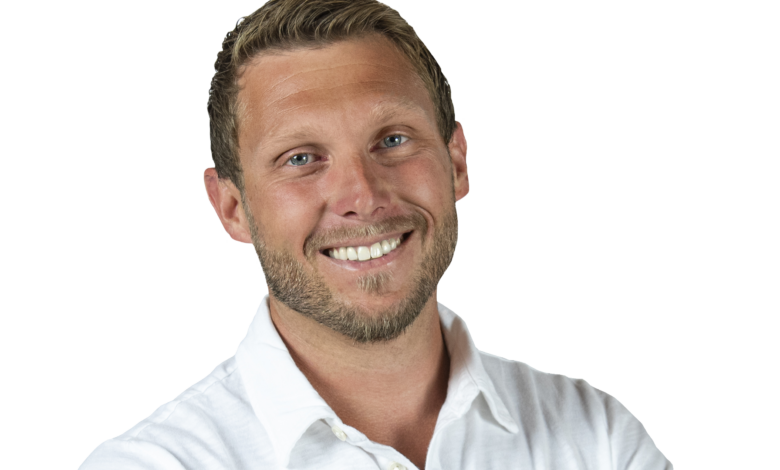
Engaging with Executives: Ryan Rivett, President and CEO of My Place
By David Berman | May 1, 2023
Our Engaging with Executives series consists of one-on-one Q&As with executives around the hospitality industry, breaking down recent trends and news in their companies and the industry as a whole.
Today’s interview is with Ryan Rivett, President & CEO of My Place Hotels of America. Rivett grew up around the hospitality industry, as his grandfather co-founded hotel company Super 8 in 1974 in Aberdeen, South Dakota. The brand was sold in 1993, and Rivett was a franchisee until 2011 when My Place was formed in the same town.
Rivett sat down with Hotel Interactive at AAHOACON 2023 to discuss growing up in the industry, carrying on the family legacy and the growth of My Place.
Hotel Interactive: I’d love to hear a little bit more about your experience with growing up around hospitality. What lessons or core values were instilled in you from that age that you still carry with you today?
Ryan Rivett: I think the things that stood out to me the most were how much the people that I spent time around when I was younger, my grandfather and some others inside of the company, how important it was for them to engage with people and entertain people. Obviously, as a kid I wasn’t involved in the “business” aspects of the business. But I watched the entertainment things that happened, the conventions that we had and franchisee meetings that came about … and I fortunately got to go to a lot of that stuff.
So what has stuck with us culturally as I’ve been running the company now for 17 years is that people that have come to work with us who seem to do the very best, they’re just really engaging with other people. They like to have people over for dinner. They like to have group gatherings and things like that. So you find that in our offices throughout the week, in the afternoon, people are wrapping up and you’ll find different groups of people all gathering together and having a drink or doing something like that. And so it’s just about engaging with people, and that’s really what hospitality is. So I think that’s the thing that stood out to me the most.
HI: What does it mean for you to carry on this family legacy — not the same company exactly, but just the hospitality legacy that your grandfather started?
RR: My grandfather was an only child. He had three daughters, one of whom was my mom. My mom had me while she was in college, and I’ve never known my biological father. My grandfather really stepped in and took care of us and was the father figure to me growing up, and our relationship remains to be that today. It was pretty cool for him because he only had three daughters. He didn’t have a son. Really, that generation, the guys that are 70-80 years old right now, even more so than today’s generations, regard that legacy and lineage aspect, father to son and stuff like that.
So the circumstances being that for him were already pretty cool and he’s pretty affectionate in talking about that. The conversation about getting back into the franchise business that ultimately precipitated My Place was a conversation between him and I where he said, “We’re always going to be in the hotel business. I’m always going to be in the hotel business, but I really don’t like how we’re doing it today because I don’t like the models of franchising that we’re subjected to as franchisees. The products are good, but I don’t like how they’re being delivered. And there’s just a lot of elements of it that just did not make sense and weren’t effective enough in business.”
And it’s one of those things that once you’ve already done it, then to be subject to somebody else’s method it’s really difficult to do. So he came to me and said, “I wanted to do this for a while. I’ve put the idea of it in front of other business partners of mine, none of whom have wanted to take on the amount of work it takes to get it done. But you’re here now and you don’t have a choice.” (laughs) So it was pretty cool in that conversation to just — even initially, after having worked in the company for six years at that point — to have a level of confidence like that wasn’t necessarily something that I had earned to that point, but it was really a lot about, hey, I want to see this legacy continue and to be entrusted with that. Pretty awesome. And so for me, the business that I’d grown up in and really have only ever focused on, and then to have the support of somebody who’s very good and the organization that surrounded our company. We’ve had as many as 300 and some employees at the corporate offices in Aberdeen. We’re at about 120 right now. You know, we go through some different iterations over that 50 year history now. There’s a lot of people that rely on our group of companies and our organization to support their families and things like that. So just all of that coming into it is pretty cool, but then I think where the icing on the cake is, is that Super 8 grew from starting as one hotel in 1974 to 1993 — so in a 20 year period — there were almost 1100 operating properties from Year One to Year 20. So that’s incredible growth and something that you just don’t see.
Then the sale of it was very successful and obviously, the brand looks a lot different today than it did back then. But it’s still one of the largest hotel chains in the world founded in tiny little Aberdeen, South Dakota, and now to be growing and successful like we are in My Place is almost like watching lightning strike twice for the person who gave me the biggest opportunity. I look at that, and I have four kids and chances are one of them will want to get into the business. I got two boys and two girls, and I hope that at least one if not all of them want to carry some mantle inside of the business because it’s pretty exciting to be able to do that. to see that model for passing business along makes me think I might actually have an opportunity to succeed at bringing my kids (into it).
HI: Doing some background research before I met with you, I saw some interviews where you’ve talked about the economy and midscale segments. So I want to get any sort of updated thoughts on where you feel those segments are in 2023, and just the future of those moving forward as those brands and properties evolve.
RR: I think the lines between segments continue to get blurred as the lines between brands continue to get blurred. Working in the industry, we get so biased and polarized by, “this is this brand and this is this brand and this is this segment.” There is actually differentiation, but when you look at it through the lens of the customer, which is the most important thing that we have to look at for today, people don’t necessarily talk about “well, I’m loyal to this brand or that brand.” They talk about the greater parent companies that they know. So that would tell you that there’s probably too many names with not enough product differentiation.
And I think beyond that, we have a situation where a brand that is designed to be an upper midscale brand, that has 900 properties across the US, there’s some component of those properties that are really operating outside of the parameters of what it was designed to be, which somewhat is inherent with growth, but I think a little bit is just indicative of less concern for the integrity of the brand and the standards and things like that. So it’s something that, it’s probably easy to say as a relatively small brand like we are today, but the standards are really important to us and making sure that we operate within the confines of those standards is important. And so as I look at upper midscale and midscale and economy and now we’ve added in other terms like lower midscale and upper economy, it seems like it’s just sort of polarized marketing within the industry that makes any of that relevant.
Our most direct competitors in terms of product and price would be Home2 Suites or TownePlace Suites or Candlewood Suites. We also have the opportunity to, and do frequently, elevate business out of lower midscale and economy properties that are in our competitive sets around the country too. I think it’s important that, while we have some definition and segmentation in the industry, we also as hoteliers, as franchisors, don’t confine ourselves to some box that was defined for us. Those lines have been really blurred today. And I don’t think it’s gonna get any better. So I’m not sure what it looks like in the future. We really kind of just pay more attention to who we are, what we’re doing and how we’re doing it than how the industry really defines us, because what’s more important is how the customers define us.
HI: Going off of that, what do those blurred segment lines mean for the consumer? Does that lead to changes in prices — what economy or midscale can charge if these lines are getting blurred?
RR: I think it makes satisfaction with the experience that a customer has in the hotel more difficult to achieve because expectations going in are often different than what they get. We can all still define or delineate from a distance the difference between a luxury property and an economy property. No blurred lines between those two things. It’s everything in the middle. So when a customer walks into a upper midscale property of a notable brand, expecting that they’re going to get that quality and that experience that’s been marketed to them and they get something significantly different, which I understand happens a lot and I’ve experienced as a traveler a lot myself, I think that’s where those blurred segmentation lines provide a lot of operators the opportunity to go wide on how they manage their property and what standards they adhere to. It makes it more difficult to satisfy customers, by and large.
HI: I’d love to hear next about challenges that MyPlace has been facing. At many of these conferences, people will talk about labor, talk about the looming recession that may or may not happen. Any thoughts on those challenges and any others that MyPlace has been facing?
RR: Across the chain on the operation side, franchisees are struggling with not only maintaining labor in their properties, people move around more than they ever have before, they’re also containing the cost involved not only with hourly wages, but with the investment you have to make on every employee and the turnover cost of that when the turnover happens a lot more frequently. So those are definitely big challenges, but I think some of the challenges that the hotel industry and we certainly are facing that don’t get talked about as much are within the technology space.
We have a big portion of the hospitality industry that’s operating off of legacy-based technology systems that are antiquated in ergonomics and how they function and things like that. There are smaller software companies and there’s a lot of new technology that’s been developed that would really work great, except you can only get 85% of the way to being fully integrated and all of that because they had to design it to match up with these legacy systems. So then when you come in with something new, that works really well and you need to integrate with this, all of a sudden you have a clash. You have a challenge there. We see that in every aspect – with sales and marketing, leadership development, with elearning platforms, down to the very most basic functional elements of property management systems and central reservation systems and the integrations with all the different sales channels out there. I think that’s a big item that doesn’t, doesn’t hit the narrative as much as it should is that in the hospitality industry, our technology is a decade behind the rest of our counterparts, the restaurant industry, and the retail industry; simple systems that don’t cost very much money at all to implement and maintain do so much more than a lot of the more costly and complicated systems that we operate inside the hotel industry.
As I look at us as a growing brand, continuing to train people on operations, continuing to implement and innovate in how we gather analytics and redistribute data and how we collect sales information and how we collect data from our customers to know how to best address them, so much of that is done manually and individual silos as opposed to being able to be rolled up into one. We so far haven’t found the right mix, but we’re looking for it and developing it in areas where it’s feasible to do so. It is a big challenge and it’s costly. It takes up a lot of time, a lot of resources on our executive team and on our specific IT and security and technology team. So that’s what I’d like to see catch the narrative in our industry a little bit more.
HI: What’s coming down the pipeline in terms of goals and initiatives for MyPlace this year?
RR: We’ve got a handful of technology development items that I’m excited about. We rolled out last year our e-learning platform for general manager and hotel operations staff training. That has really taken some momentum. It took us a while to get everybody to buy into what we had out there for them. And now that’s really catching some steam. So a big objective of ours in 2023 is to make sure that we fully reinforce that. We have everything on there from how to unclog a toilet in a hotel room to preventative maintenance items like dealing with HVAC systems and stuff like that, to guest experience elements and things that are already on there but need to be expanded upon. So it’s a huge one for us.
Franchise development has been phenomenal. We’ve grown by 40% in the last six months. That’s huge for us, and the multi-property operators and developers are the base of our forward momentum right now. So (we’re) focusing a lot on those and developing more relationships that present themselves that way. So really a lot of it is just maintaining the course that we’ve been on, but accelerating the pace that we’re going through it. We’ve got a great team, I look at MyPlace hotels, the franchise company individually only has about 40 employees today. Our organization, in total, surrounding MyPlace and other service companies that support it are substantially more than that, but of those 40 people, we’ve been in business for 10 years now. Our average tenure is over seven years. So the people that we have are sticking around and they’re a big portion of why MyPlace has been successful. So they just continue to grow and mature in the business and their impact on it. 2023 is a lot about maturity for us. The last couple of years have been challenging and chaotic, and we’ve grown a lot and matured a lot through that. So now it’s kind of a “we’re here we’ll show you how much impact we can make.”

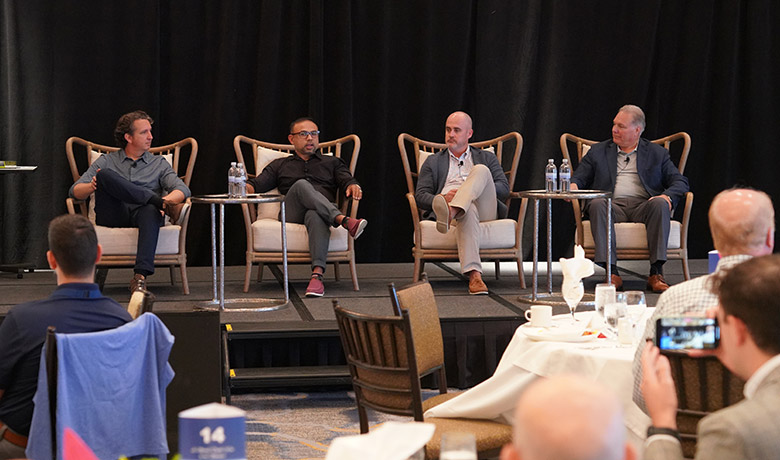
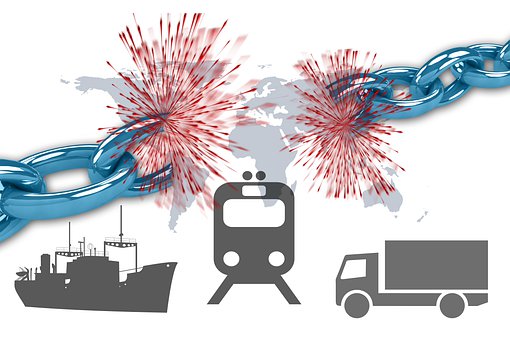
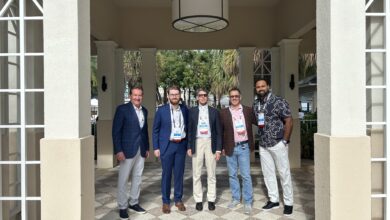
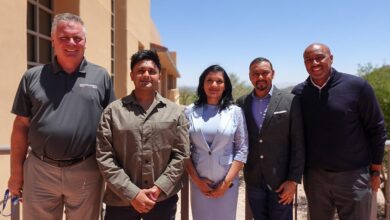
Get involved!
Comments